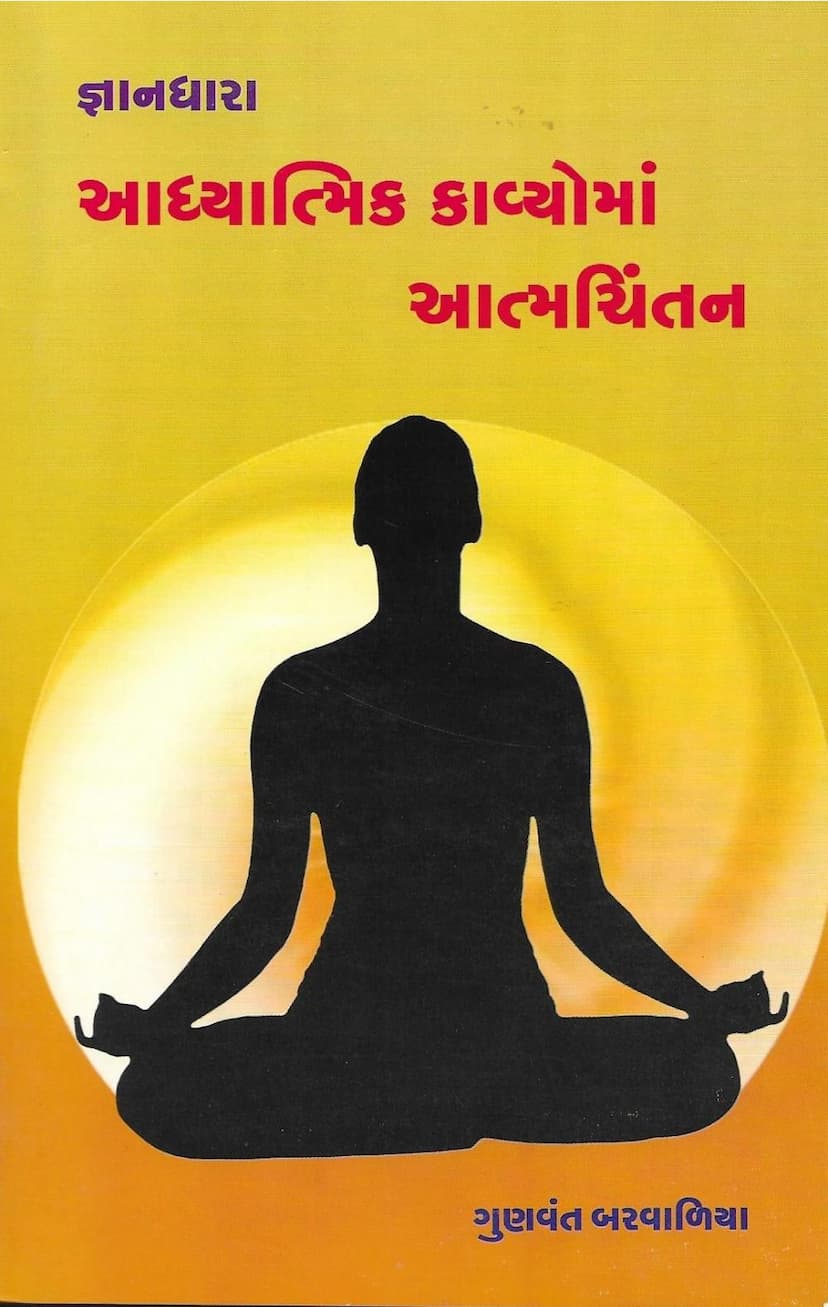Gyandhara 16 Adhyatmik Kavyoma Aatmchintan
Added to library: September 1, 2025

Summary
This book, Gyandhara 16: Adhyatmik Kavyoma Atmachintan (Volume 16: Self-Reflection in Spiritual Poetry), edited by Gunvant Barvalia and published by Arham Spiritual Centre, is a compilation of research papers presented at the 16th Jain Literature Knowledge Convention. The convention, held on September 2nd and 3rd, 2017, in Valsad, under the auspices of the Saurashtra Kesari Pranguru Jain Philosophical and Literary Research Centre, Ghatkopar, was dedicated to the theme "Self-Reflection in Spiritual Poetry."
The book features a collection of scholarly articles that delve into the concept of Atmachintan (self-reflection) as expressed through spiritual poetry, primarily within the Jain tradition but also drawing from other spiritual and philosophical streams in India.
Key Themes and Content:
The volume explores how various poets and saints across different eras and traditions have used poetry as a medium for introspection, spiritual exploration, and understanding the nature of the soul. The collection covers a wide range of influential figures and their works, including:
- Jain Acharyas and Saints: The book highlights the self-reflective verses of prominent Jain figures like Shrimad Devchandji, Muni Ratnakar (through his Ratnakar Pachchisi), and Upadhyay P. Yashovijayji M.S. These analyses focus on their spiritual insights, the essence of their teachings, and how their poetry guides seekers towards self-realization.
- Other Indian Spiritual Poets and Philosophers: The collection extends beyond Jainism to include profound spiritual poets from various Indian traditions. This includes:
- Kabir: His verses are examined for their philosophical depth and critique of societal norms.
- Meghadada (Kachchi poet): Explores his spiritual philosophy and simple yet profound language.
- Acharya Buddhisagarji: His inner spiritual sensations and their expression in poetry are discussed.
- Swami Brahmanand: From the Swaminarayan Sampradaya, his devotional poetry (kirtans) and spiritual philosophy are analyzed.
- Kavi Nanchandji M.S.: His compositions are studied for their spiritual reflections.
- Kavi "Anand" (Muni Chandramji Maharaj): His introspective poetry and the journey of inner consciousness are explored.
- Lallesvari (Kashmiri Saint-Poetess): Her philosophical poems (vaakh) and their spiritual message are presented.
- Avadhut Yogi Anandghanji: His exploration of the soul and the process of self-realization through his verses are highlighted.
- Shrimakd Rajchandra: His profound spiritual insights and their presentation in poetry are discussed, particularly focusing on the stages of spiritual development.
- Saint poets like Narsinh Mehta, Mira Bai, Akha, Pritamdas, Gangasati, and Lalleshwari: These revered figures are analyzed for their contributions to spiritual poetry and introspection, showcasing their unique perspectives on devotion, detachment, and the nature of reality.
- Poets like Makrand Dave and Rajendra Shah: Their modern spiritual poetry, which often blends philosophy and profound introspection, is also featured.
- Sant Kabir: His pragmatic philosophy and critique of societal ills are examined.
- Kayamuddin Chishti: His poetry reflecting Indian philosophy is analyzed.
Core Message:
The central theme is that spiritual poetry serves as a powerful vehicle for Atmachintan. It offers solace, guidance, and a path towards understanding the true nature of the self, the divine, and the universe. The book emphasizes that by engaging with these verses, readers can embark on their own spiritual journey, leading to self-purification, liberation, and ultimate bliss. The collection aims to inspire readers to reflect on their own spiritual path and to find meaning and purpose in life through the wisdom of these revered poets.
Overall Purpose:
The Gyandhara series, and this volume in particular, aims to promote the study and appreciation of Jain literature and philosophy. By compiling and presenting these scholarly works, the Arham Spiritual Centre seeks to make these profound spiritual insights accessible to a wider audience, fostering spiritual growth and self-understanding. The book serves as a testament to the enduring power of spiritual poetry to illuminate the path of self-discovery and divine realization.